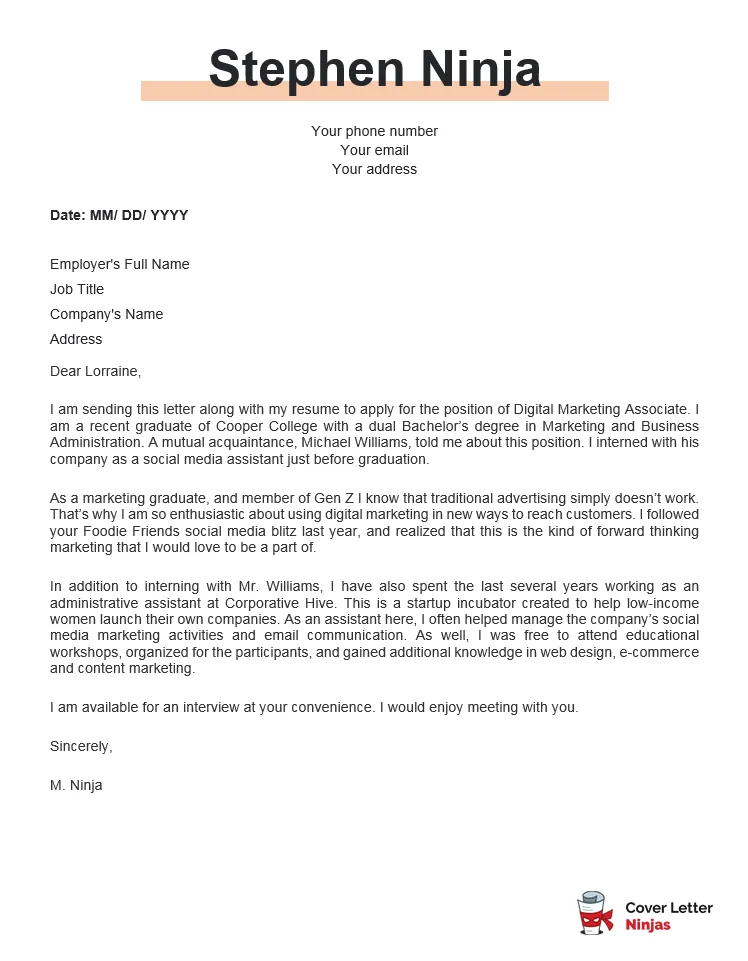Understanding the Importance of a Cover Letter
A cover letter is your first introduction to a potential employer, and it is often the initial step in the application process. Even without prior work experience, a well-crafted cover letter allows you to make a strong first impression, showcasing your personality, enthusiasm, and the value you bring to the table. It gives you the opportunity to go beyond the limitations of a resume and explain your motivations for applying for a specific role. By highlighting your skills, educational background, and any relevant experiences, you demonstrate your commitment and potential to contribute to the company. A cover letter also serves as a way to personalize your application, making you stand out from other candidates who may have similar qualifications. Therefore, it is a critical tool for job seekers who are looking for opportunities with no experience because it focuses on potential.
Why a Cover Letter Matters [No Experience]
When you have no professional experience, a cover letter becomes even more crucial. It acts as a narrative that compensates for the lack of a work history by illustrating your understanding of the role. It provides space to highlight transferable skills acquired from academic, volunteer, or personal projects. Your cover letter becomes your primary sales pitch, showcasing your enthusiasm, adaptability, and willingness to learn, all of which are highly valued by employers. A compelling cover letter with no experience allows you to provide context for your resume, elaborating on why you’re a great fit, even without direct experience. It demonstrates your communication skills and personality, giving employers insights that they wouldn’t get just from a list of qualifications. It can highlight achievements, even from non-work settings, which displays your initiative and competence, making you more appealing as a candidate.
Key Components of a Cover Letter for No Experience
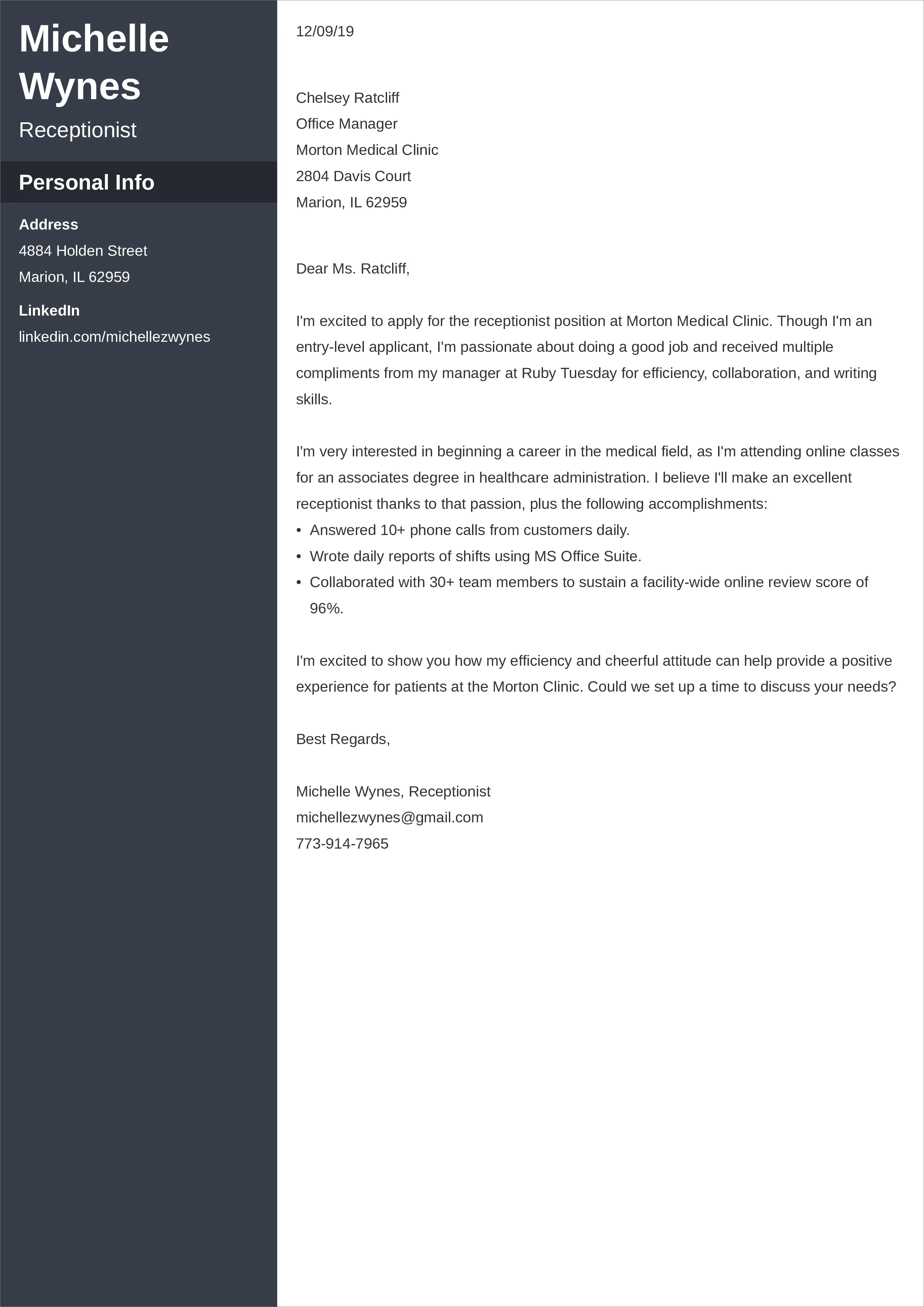
A well-structured cover letter should follow a specific format. This helps in making it clear and easy to read. The key components help you organize your thoughts and make a compelling case. Proper formatting and content will help employers quickly assess your suitability for the role. The sections include header details, an opening paragraph, body paragraphs, a conclusion, and a call to action. Each part serves a distinct function in presenting your qualifications and enthusiasm. These components work together to convey your message clearly and effectively, making it stand out to the hiring manager. By addressing each of these components, you are also displaying your communication skills.
Header Details
The header of your cover letter should include your contact information, the date, and the employer’s information. This is the first part an employer will see and it establishes professionalism. Start with your full name, address, phone number, and email address. Ensure this information is accurate and up to date to facilitate easy communication. Following your contact information, write the date you are submitting the cover letter. After the date, include the hiring manager’s name and title, the company’s name, and the company’s address. If you do not know the hiring manager’s name, research it. Addressing the letter to a specific person is more personal than using a general greeting. Pay close attention to detail; this section demonstrates your ability to follow instructions and your respect for the recipient’s time. A correct header gives the employer the initial good impression of you.
Opening Paragraph
The opening paragraph sets the tone for your entire cover letter. It is the first impression. Start with a clear statement of your purpose: mentioning the specific job you are applying for. State where you found the job posting (e.g., online, referral) because it is important to provide context. Then, express your enthusiasm for the position and the company. Briefly mention what initially attracted you to the role or the organization. Keep this paragraph concise and engaging to capture the reader’s attention. It is your chance to hook the reader and make them want to read the rest of your letter. A strong opening paragraph will motivate them to continue reading, increasing the likelihood of your application being considered. This is important since you have no experience.
Body Paragraphs
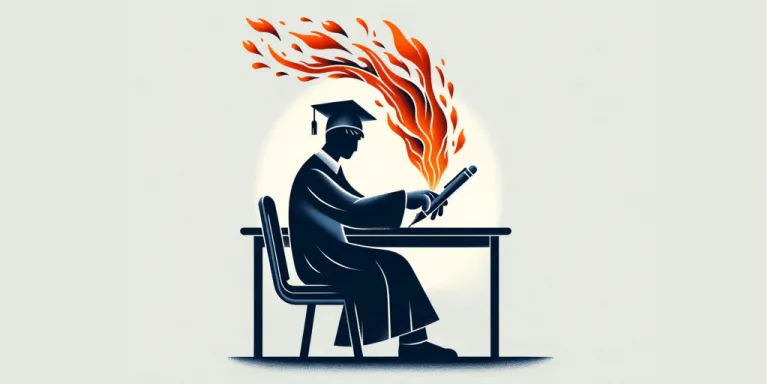
The body paragraphs are the heart of your cover letter. This is where you provide detailed information. Highlight your transferable skills, demonstrate how your skills match the job requirements, and provide evidence of your abilities. Use specific examples to illustrate your skills and achievements from your education, volunteer work, or personal projects. Explain how these experiences have prepared you for the job. Quantify your achievements whenever possible to provide measurable results. These examples help to make your claims more credible. Use clear and concise language to keep the reader engaged, breaking up long paragraphs. Each paragraph should focus on a single idea, making it easy for the reader to follow your arguments. It is also important to connect your skills to the needs of the employer.
Highlighting Transferable Skills
Transferable skills are those abilities that can be applied in various roles, even without direct experience. Identify the skills that are relevant to the job requirements. These skills could include communication, problem-solving, time management, teamwork, or leadership. Provide specific examples of when you have demonstrated these skills in academic projects, volunteer activities, or other non-work settings. Explain the situation, the actions you took, and the results achieved. This demonstration proves your abilities. Adapt your examples to show you know what you are doing. Ensure the examples showcase how your skills can be applied to the new role. By focusing on transferable skills, you can highlight your strengths.
Showcasing Skills from Education
Your educational background is a valuable source of skills and experience. Highlight projects, coursework, or academic achievements that are relevant to the job. Mention any specializations, relevant courses, or extracurricular activities that demonstrate your interest and aptitude. Explain how your academic work has prepared you for the role. Showcase any skills you developed. Talk about group projects, research, or presentations. Explain how these activities have taught you skills like collaboration, research, and public speaking. Quantify your achievements by mentioning your GPA, awards, or honors. Emphasize your eagerness to apply your academic knowledge and enthusiasm to the job. Use examples, and always tailor your description to fit the role.
Showcasing Skills from Volunteering or Projects
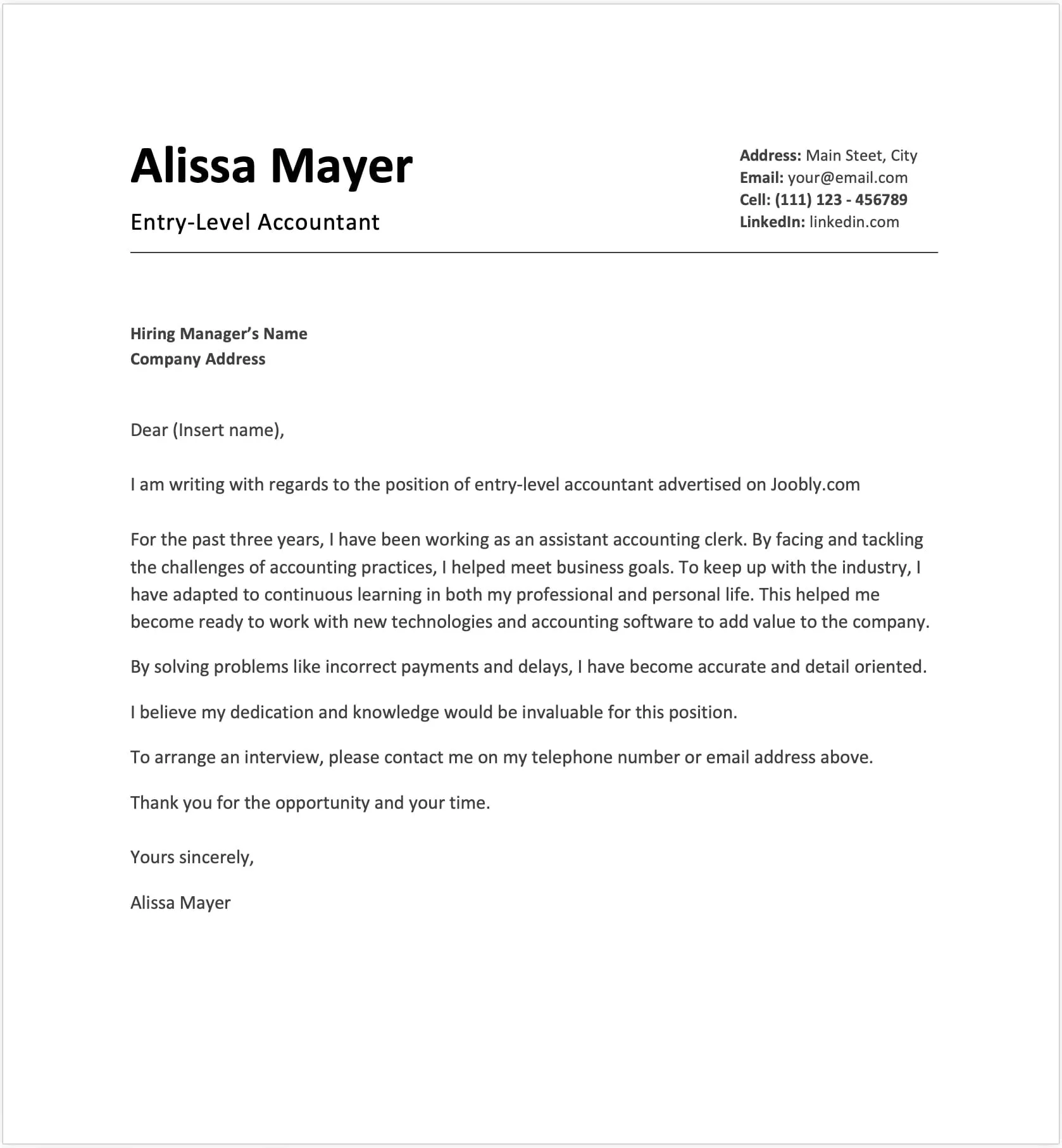
Volunteering and personal projects offer great opportunities to showcase your abilities. List any volunteer work, personal projects, or hobbies that demonstrate your skills. Explain your role, responsibilities, and the results you achieved. Provide specific examples that highlight your skills and achievements. Showcase what you learned. Even if your project or volunteer experience is not directly related to the job, highlight the transferable skills it developed. For instance, organizing a fundraising event could demonstrate leadership and project management skills. Building a website for a club shows technical skills. Describe how your involvement benefited the organization. Quantify your achievements. This shows initiative and a proactive approach to learning and development. Show that you have a commitment to personal growth.
Addressing the Lack of Experience
Address the absence of formal work experience with honesty and confidence. Acknowledge that you may lack experience and focus on what you do bring to the table. Emphasize your enthusiasm for the role and your willingness to learn and grow. Frame your lack of experience as an opportunity for you to bring a fresh perspective and innovative ideas. Highlight your adaptability and eagerness to take on new challenges. Demonstrate that you have a strong understanding of the industry or the company’s mission. Show your understanding of the role requirements. Emphasize how you are prepared to quickly learn and adapt. This will demonstrate your determination. Focus on your skills and achievements from other areas of your life.
Quantifying Achievements (Even Without Experience)
Quantifying your achievements helps demonstrate your abilities in a measurable way. Even if you have no work experience, you can quantify accomplishments from other areas. Use numbers, statistics, and percentages to showcase your impact. When describing a project, mention the number of people involved. If you volunteered, specify the amount of time you dedicated. If you received any awards, explain the criteria for recognition. Show that your participation had an impact. Use data whenever possible to demonstrate your results and the value you brought. Quantifying your achievements gives concrete evidence of your skills. Make it easier for the employer to evaluate your capabilities. This is especially important without work experience.
Closing the Cover Letter
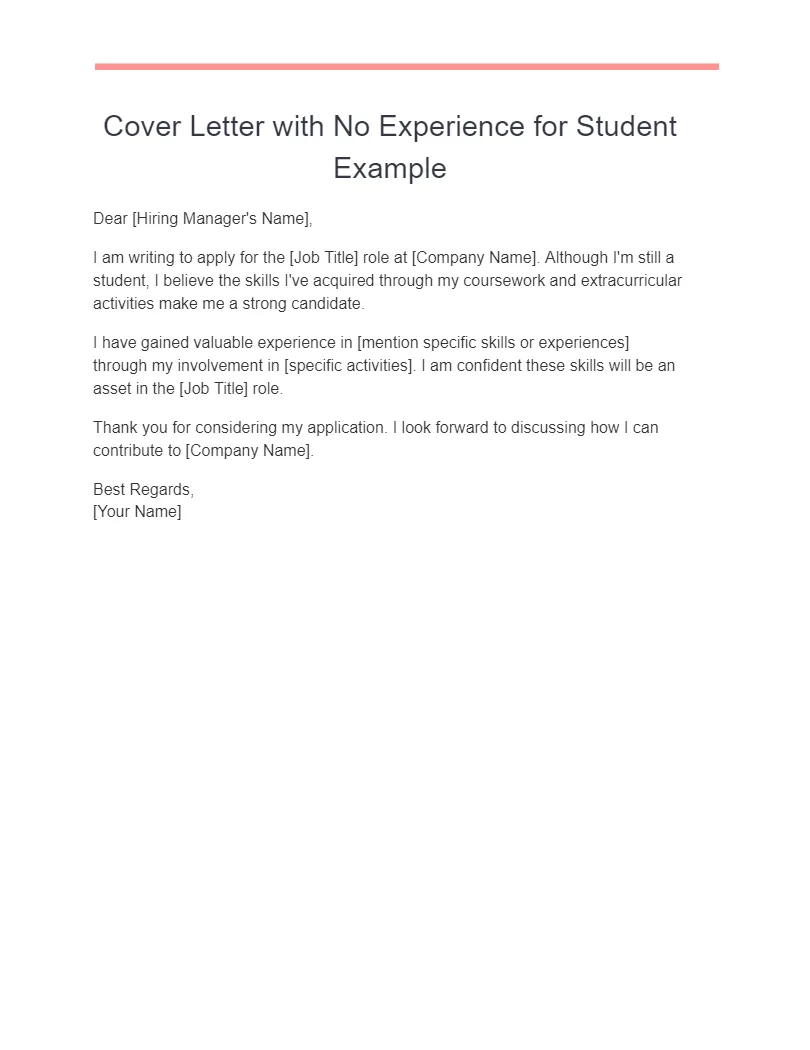
The closing paragraph should reiterate your enthusiasm and summarize your key qualifications. Reiterate your interest in the role and the company. Briefly mention why you are a good fit. Restate your key skills and experiences. Express your confidence that you can contribute to the company. Thank the reader for their time and consideration, and make sure you are confident and enthusiastic about the opportunity. Ensure it is concise and memorable, leaving a lasting positive impression. It is your final chance to leave a lasting impression on the reader.
Call to Action
Conclude your cover letter with a clear call to action. This is a vital component of a good cover letter. Request an interview to discuss your qualifications further. Provide your contact information and make it easy for the employer to reach you. State your availability for an interview and express your eagerness to hear back from them. Make it clear that you are ready to take the next step. This encourages the employer to contact you. This direct and proactive approach increases your chances of advancing in the application process. A clear call to action is very important to follow up and make sure you get an interview.
Proofreading and Editing Your Cover Letter
Proofreading and editing your cover letter is essential for making sure that you give a good impression. Errors can detract from your qualifications. Review your letter carefully for any grammatical errors, spelling mistakes, and typos. Check your sentence structure, word choice, and overall clarity. Make sure you have the proper formatting. Use a grammar checker and have someone else review your letter. Ensure that the letter is easy to read and understand, is tailored to the specific job and company, and reflects professionalism. A polished cover letter will make you appear professional. A well-edited cover letter will enhance your credibility. Take this seriously and make sure you do a good job!
